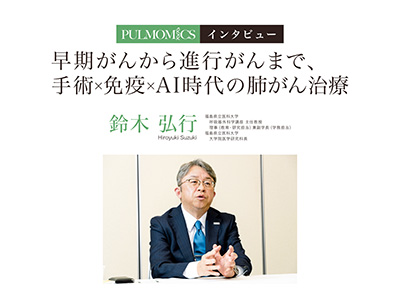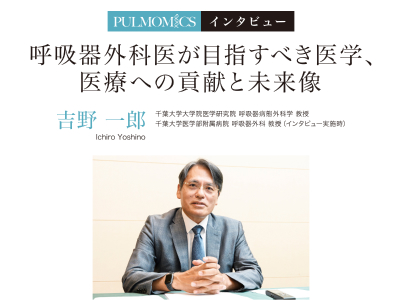- ニュース
- 添付文書
- 【厚労省】製造方法変更の通知改正-要指導・一般薬も点検対象
- 厚生労働省は8日、同日付で医薬品医療機器総合機構(PMDA)が要指導・一般...
- 読了時間:約1分3秒
2025年05月12日 AM10:50
- 【日薬】新卒初年度会費無料を検討-20代薬剤師の入会促す
- 日本薬剤師会は、28日の都道府県会長協議会で新卒薬剤師を対象とした初年度会...
- 読了時間:約1分23秒
2025年05月12日 AM10:40
- ムコ多糖症治療、カイコ由来低コスト酵素でニホンザルモデルの臨床徴候改善-京大ほか
- 京都大学は、遺伝子組換えカイコで産生したヒトライソゾーム酵素のN型糖鎖をエ...
- 読了時間:約2分16秒
2025年05月12日 AM09:30
- スマホでセルフ「認知行動療法」アプリ、うつ状態の改善を証明-京大
- 読了時間:約2分57秒
2025年05月12日 AM09:20
- 腹部大動脈瘤、動脈硬化から進展するメカニズムを解明-神戸大ほか
- 読了時間:約2分31秒
2025年05月12日 AM09:10
- 心不全患者の遠隔モニタリング、高次脳機能への効果と意義を解明-佐賀大
- 読了時間:約2分
2025年05月12日 AM09:00
- 米NIHも動物実験削減-FDAに追随し専門部署
- 読了時間:約59秒
2025年05月09日 AM10:20
QLifePro医療ニュース 特集
- 早期がんから進行がんまで、 手術×免疫×AI時代の肺がん治療
- いま、免疫チェックポイント阻害薬(ICI)の効果予測にもとづく、がん免疫療...
- 2023年07月27日 AM11:00
- 呼吸器外科医が目指すべき医学、 医療への貢献と未来像
- これは呼吸器外科医のみならず全ての医師に関わってくることですが、2024年...
- 2023年05月23日 PM06:18
- 臨床に活きる・活かす基礎研究 〜ドライバー変異のその先へ
- 私は自治医科大学の卒業で、9年間の義務年限を出身地の青森で勤めました。「研...
- 2023年03月13日 PM04:00




